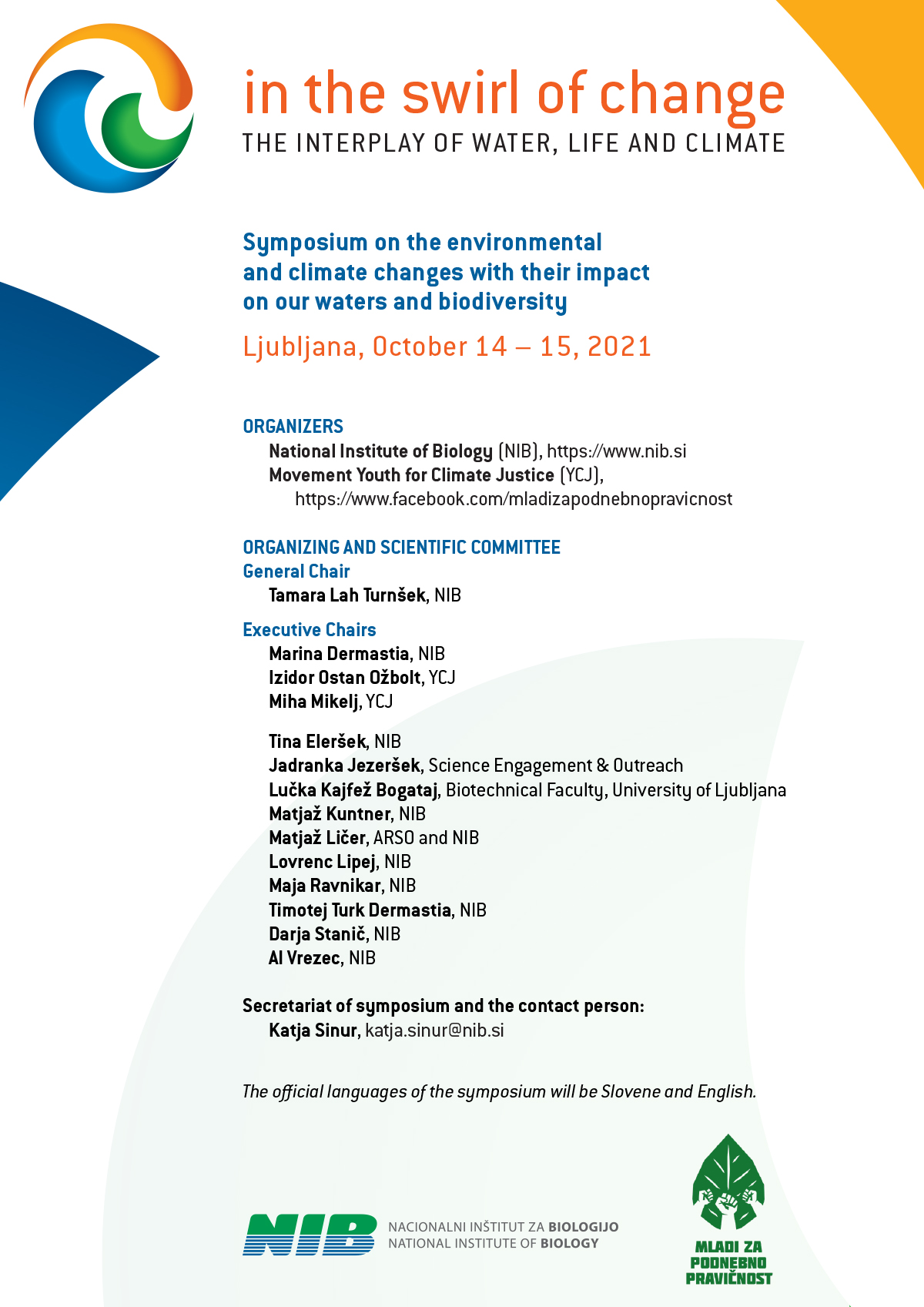10
Jun
IN THE SWIRL OF CHANGE: the interplay of water, life and climate
Symposium on the environmental and climate changes with their impact on our waters and biodiversity.
Ljubljana, October 14 – 15, 2021
Scientists know that there is something very wrong with our planet.
Today there is no doubt in the scientific community that global change is largely man-made. While policymakers prefer to focus on short-term topics, we need to act long-term and intergenerational in order to save the planet.
The Paris Agreement was an important step forward in reducing excessive human impact on the environment, and an international movement embodied by Greta Thunberg voices to politicians that half-hearted solutions are unacceptable for the young people. At the National Institute of Biology, we offer a platform with our knowledge and research to present our work on the functioning and response of the environment to global change, and to enable dialogue between science, decision makers and young people whose future is tightly interlinked with our planet’s health. The symposium will focus on aquatic ecosystems, as water enables life and also connects most of our research. Slovenia likes to highlight its water wealth, and water is also the focus of Slovenia's six-month Presidency of the Council of the European Union. We will raise the question of whether we really have such a sacred attitude towards water as we often claim. We will try to answer what our research says in the light of climate change and what is the state of our water resources and the biodiversity that depends on them. Our core message is that immediate action and conservation is much more economical than renaturation.
Our symposium will explain why protecting the environment pays off and is in the best interest of people today and in the future. We will show how National Institute of Biology is involved in global research on biodiversity and climate change, how it works with young people and decision-makers in these issues, and where we need to do better as a society and as individuals.






